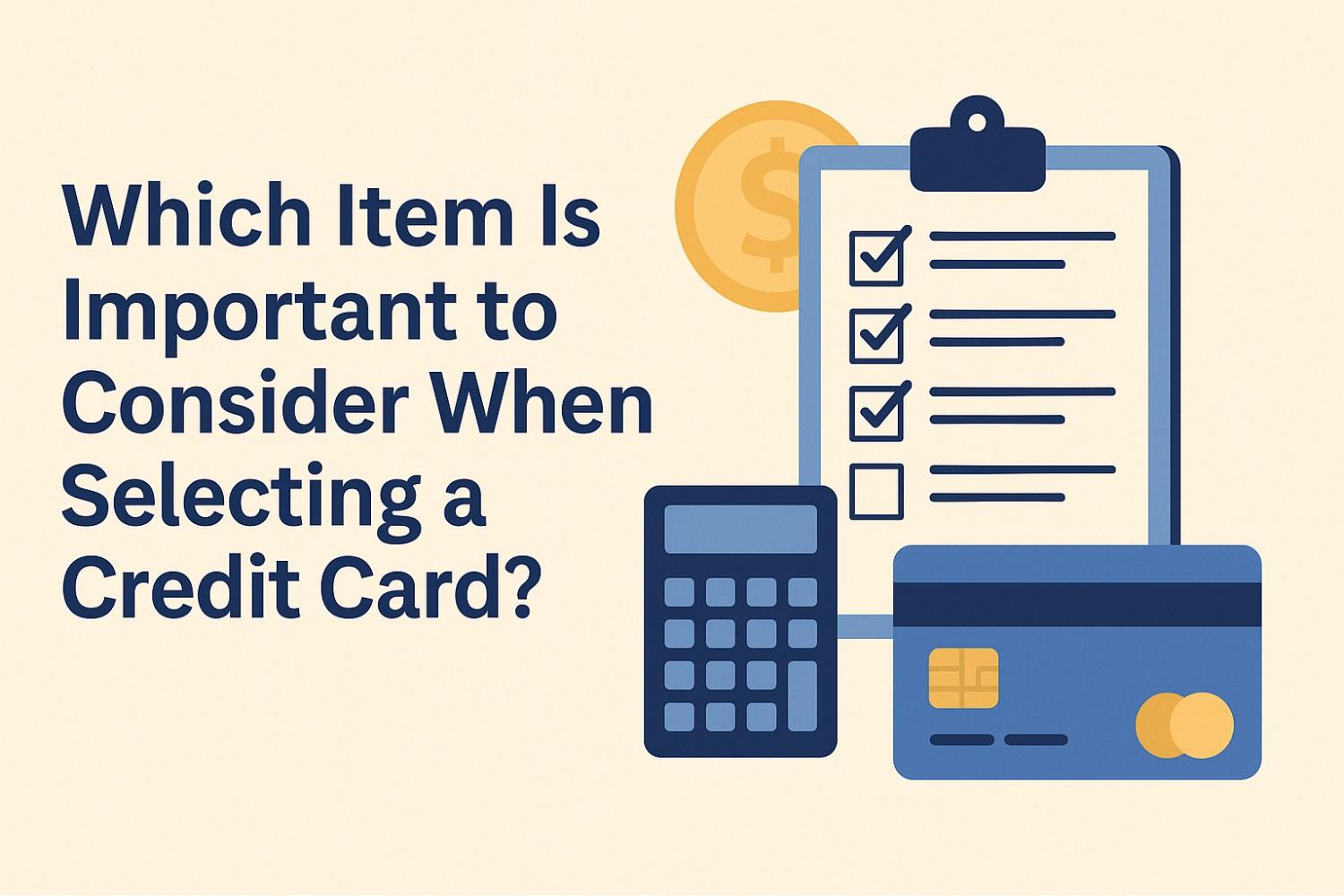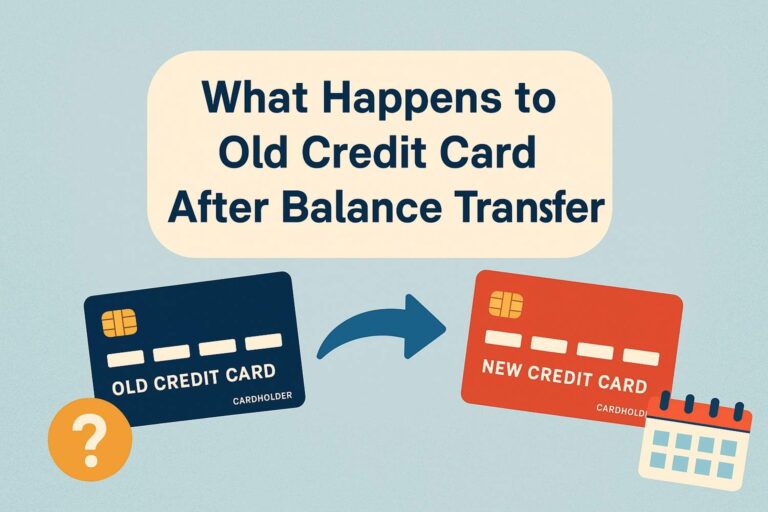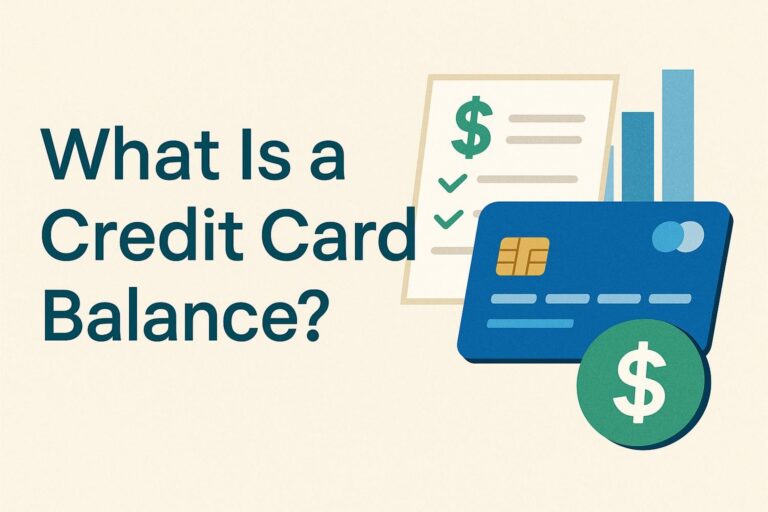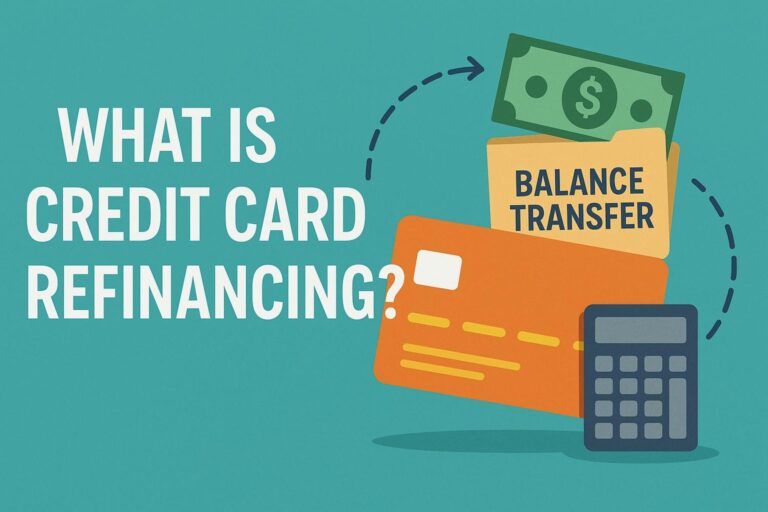When you’re thinking about applying for a new credit card, the first question you should ask yourself is this: Which item is important to consider when selecting a credit card? The truth is, the most important item is how well a card aligns with your spending habits, financial goals, and lifestyle. While numbers like APR and annual fees matter, your ideal card is the one that fits your daily life—not someone else’s idea of “best.”
Understanding What Makes a Credit Card Right for You
The “perfect” card is subjective. What works for a frequent traveler might be a poor match for someone who mainly shops online or pays every balance in full. So before chasing sign-up bonuses or flashy rewards, start by asking how you’ll actually use the card.

Spending Habits
Look closely at where most of your money goes—groceries, gas, dining, travel, or online purchases. Choose a card that gives accelerated rewards or cashback in those areas. A traveler might prefer a card with air miles and lounge access, while someone who shops online might benefit from flexible cashback or merchant discounts.
APR (Annual Percentage Rate) or Interest Rate
If you often carry a balance, a low-interest card—or one offering 0% introductory APR—is essential. Otherwise, the money you save through rewards can vanish under high finance charges. If you typically pay in full each month, APR becomes less of a deciding factor but still indicates the overall cost structure.
Fees and Charges
Every card comes with costs beyond interest: annual fees, late payment penalties, balance transfer charges, and foreign transaction fees. Make sure the perks and rewards actually outweigh these expenses. Some cards waive the annual fee in the first year, but long-term value matters more than temporary deals.
Rewards and Benefits
Today’s cards go beyond simple cashback. They might offer air miles, travel insurance, dining discounts, or extended warranties. Focus on benefits that complement your lifestyle rather than chasing every perk available. For instance, airport lounge access is valuable only if you travel often.
Credit Limit
A healthy limit gives you flexibility and boosts your credit utilization ratio (helpful for your score). However, a limit that’s too high can encourage overspending—so choose a limit that suits your comfort zone and discipline.
Credit Score
Your current credit score determines which cards you’re eligible for. Premium reward cards usually require good to excellent credit (FICO 670+), while starter cards may accept lower scores with smaller limits. Checking your credit before applying prevents unnecessary hard inquiries.
Terms and Conditions
It’s tempting to skip the fine print, but that’s where you’ll find crucial details: grace periods, payment deadlines, penalty APRs, and reward redemption rules. Understanding these terms keeps you from unpleasant surprises later on.
By focusing on a card that truly reflects your financial routine and discipline, you can maximize its advantages while avoiding unnecessary debt and hidden fees.
Why APR and Fees Still Deserve Priority
So, back to the central question: Which item is important to consider when selecting a credit card? Even though personal habits matter most, APR and fees remain the universal equalizer. They define the real cost of using credit. Whether you earn 5% cashback or free travel upgrades, those perks lose value if you’re paying steep interest or recurring charges.

The Schumer Box Advantage
Every card issuer in the U.S. must provide a “Schumer Box,” a transparent summary of costs. Reviewing it lets you compare purchase APR, balance transfer APR, cash advance APR, annual fee, and penalty fees side-by-side. This single table is your best defense against hidden expenses.
Matching Card Types to Goals
If you carry balances:
- Focus on low ongoing APR and a long 0% introductory offer.
- Ignore fancy perks until your balance is under control.
If you pay in full:
- Opt for high-reward or no-annual-fee cards.
- Compare reward flexibility—cashback is simplest, points require tracking.
If you travel often:
- Look for no foreign transaction fees, global acceptance, and travel insurance.
- Evaluate redemption ease for miles or hotel points.
If you’re building credit:
- Start with a secured or student card and keep balances low.
- On-time payments build the track record needed for better offers later.
Frequently Asked Questions
1. What’s the average APR for credit cards right now?
As of late 2023, the national average APR hovers around 22–23% (Federal Reserve data). If you expect to carry a balance, look for something below that range or a card offering a 0% intro APR for 12–18 months.
2. Should I ever pay an annual fee?
Yes—if the rewards or benefits outweigh the cost. For example, a $95 annual-fee travel card that gives you $300 in flight credits is worthwhile. But if you rarely travel, a no-fee cashback card makes more sense.
3. Does my credit score affect my approval chances?
Absolutely. Your score influences both eligibility and the interest rate offered. Excellent scores (740+) qualify for premium cards with low APRs and high rewards. Lower scores may be limited to secured or basic cards with fewer perks.
4. How can I effectively compare multiple cards?
Use the Schumer Box from each issuer—it lists all key rates and fees in one place. Compare APRs, annual fees, and benefits relevant to your lifestyle. Tools from reputable sources like NerdWallet and Bankrate also let you simulate savings and total costs.
Smart Credit Moves for Long-Term Success
The best way to select a card is to treat it as part of your overall financial plan—not a quick perk grab. Consider your spending patterns, income stability, and repayment habits. Remember, the most important item to consider when selecting a credit card is how it fits you. A perfect card balances low cost (APR + fees) with features you’ll actually use. Make thoughtful choices now, and your credit card will help build your financial strength rather than drain it.










